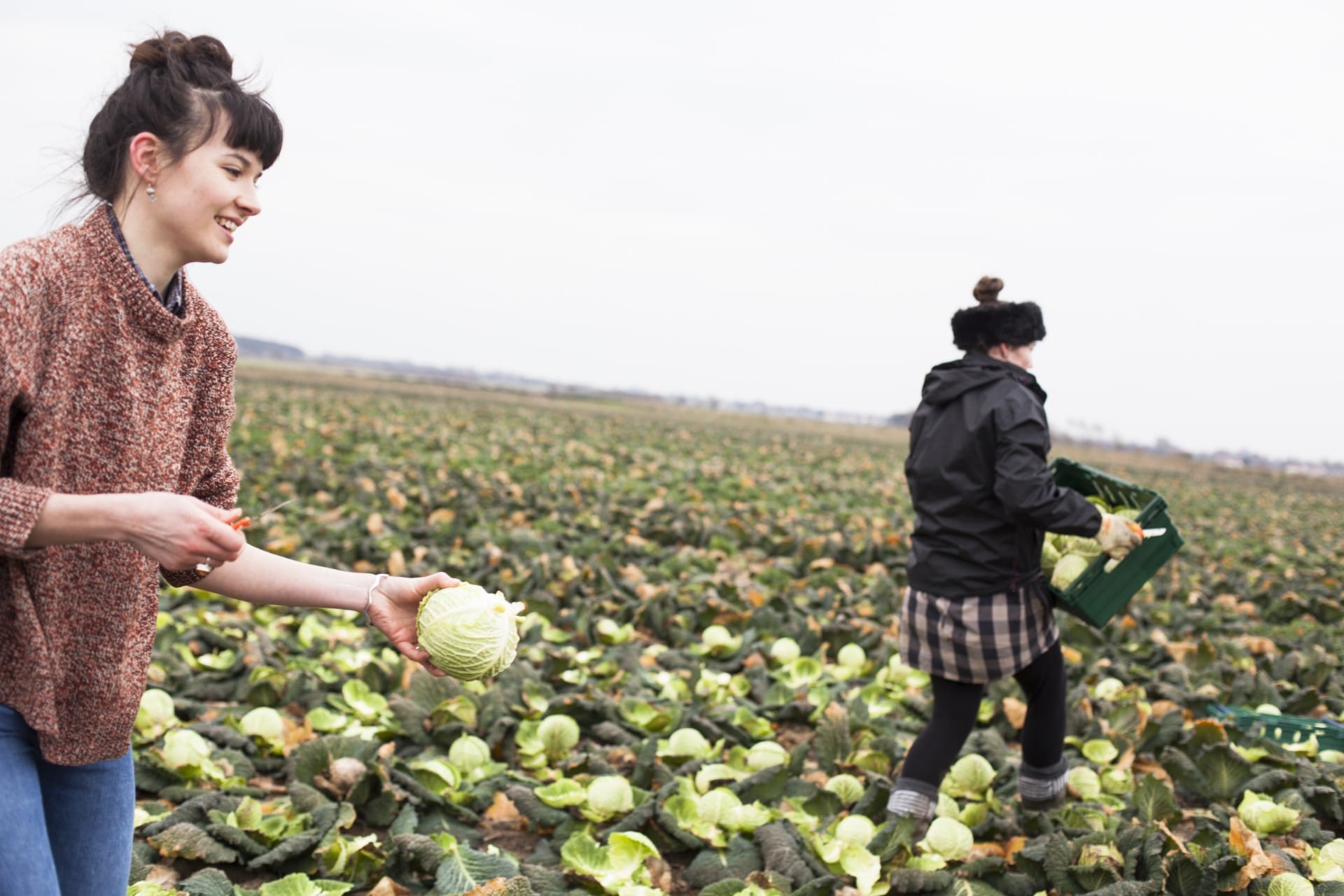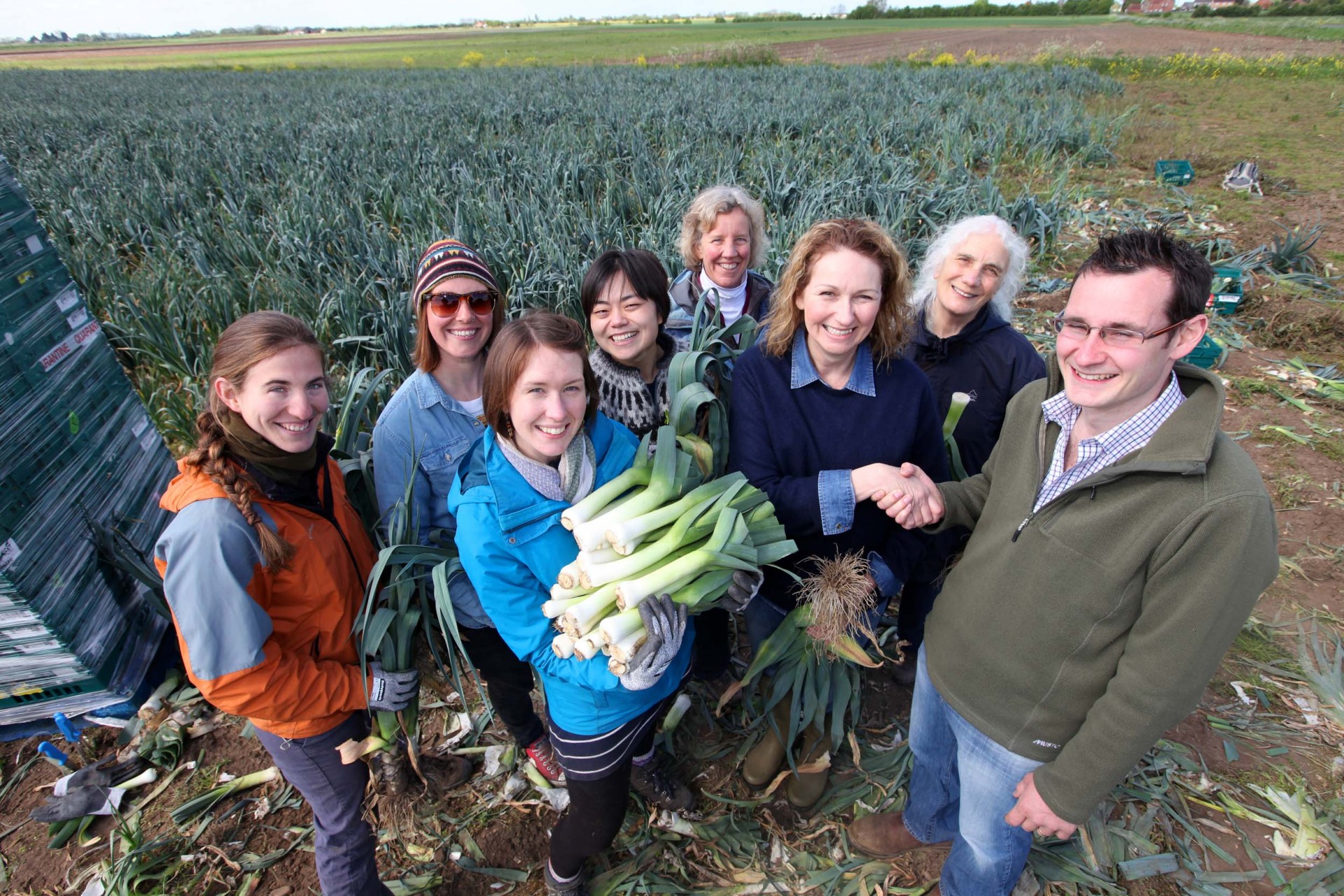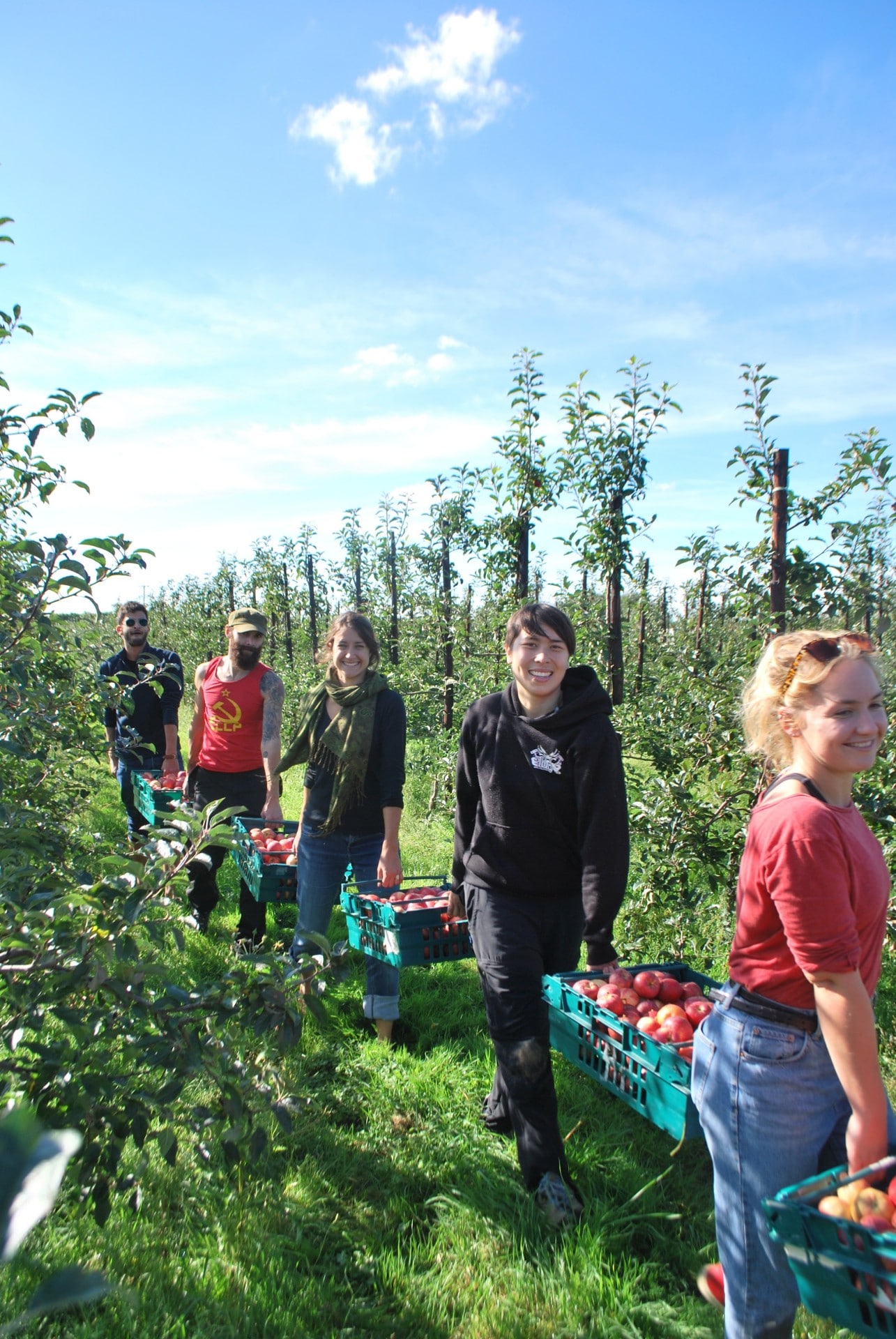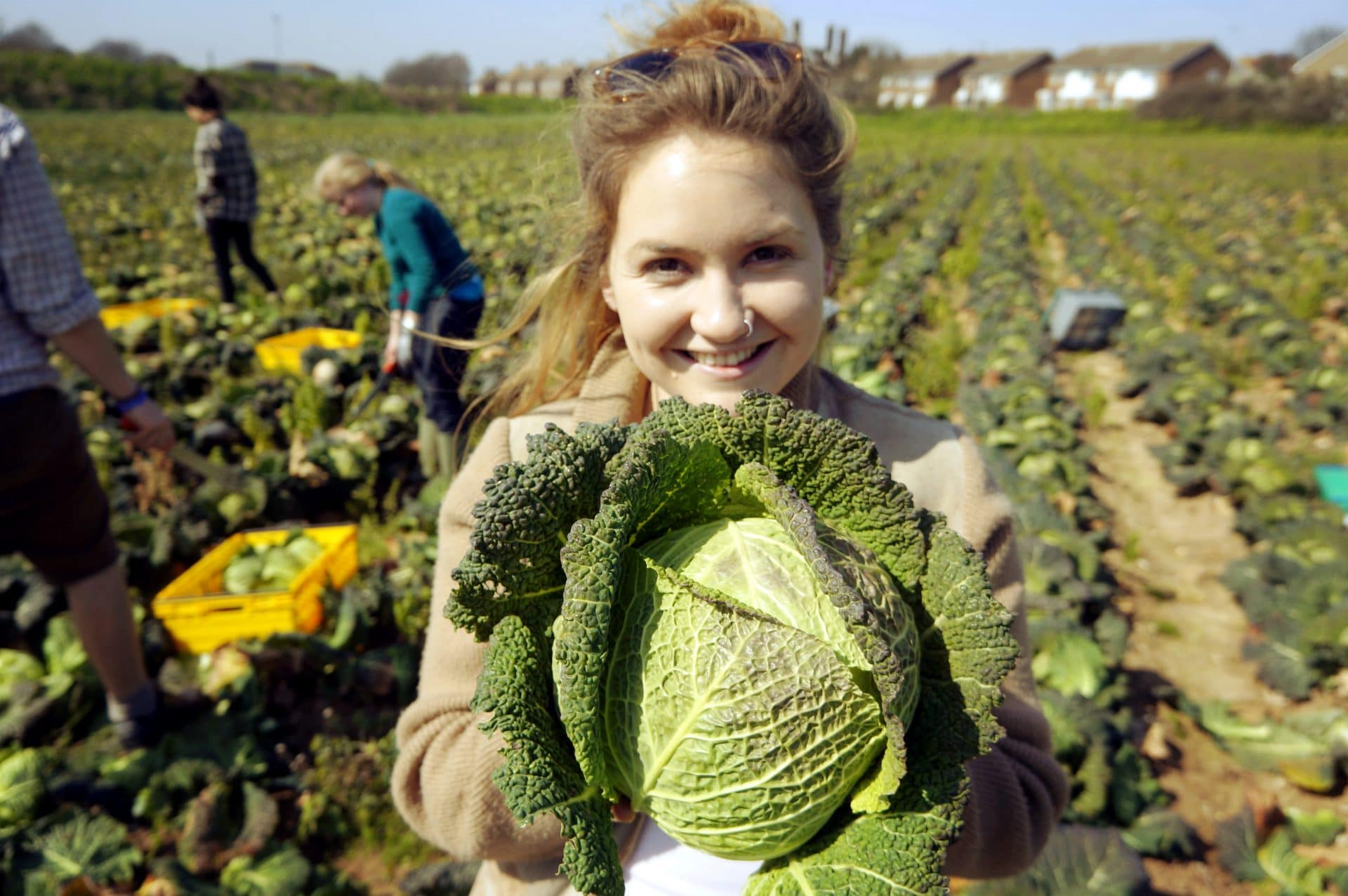United Kingdom (London)
One third all all food is wasted; which is staggering. But there is a fun way to reduce this.
The Gleaning Network work with three such facts: that 20-40 per cent of the UK’s fruit and vegetables are rejected by supermarkets’ excessive cosmetic standards; that three billion people could be fed by reducing food supply waste, currently standing at one third of all food produced; and that 10 per cent of rich countries’ greenhouse emissions come from growing food that is never eaten.
Enter the gleaners. Gleaning is not new, stemming back to the Middle Ages when reject crops were gathered after harvest and given to the needy. As this is too expensive and difficult for farmers to coordinate themselves, environmental organisation Feedback organise volunteers to salvage thousands of tonnes from their farms and donate it to food redistribution charities. Pickers collect anything that doesn’t meet shops’ cosmetic specifications, to stop produce that is perfectly edible being ploughed back into the land.
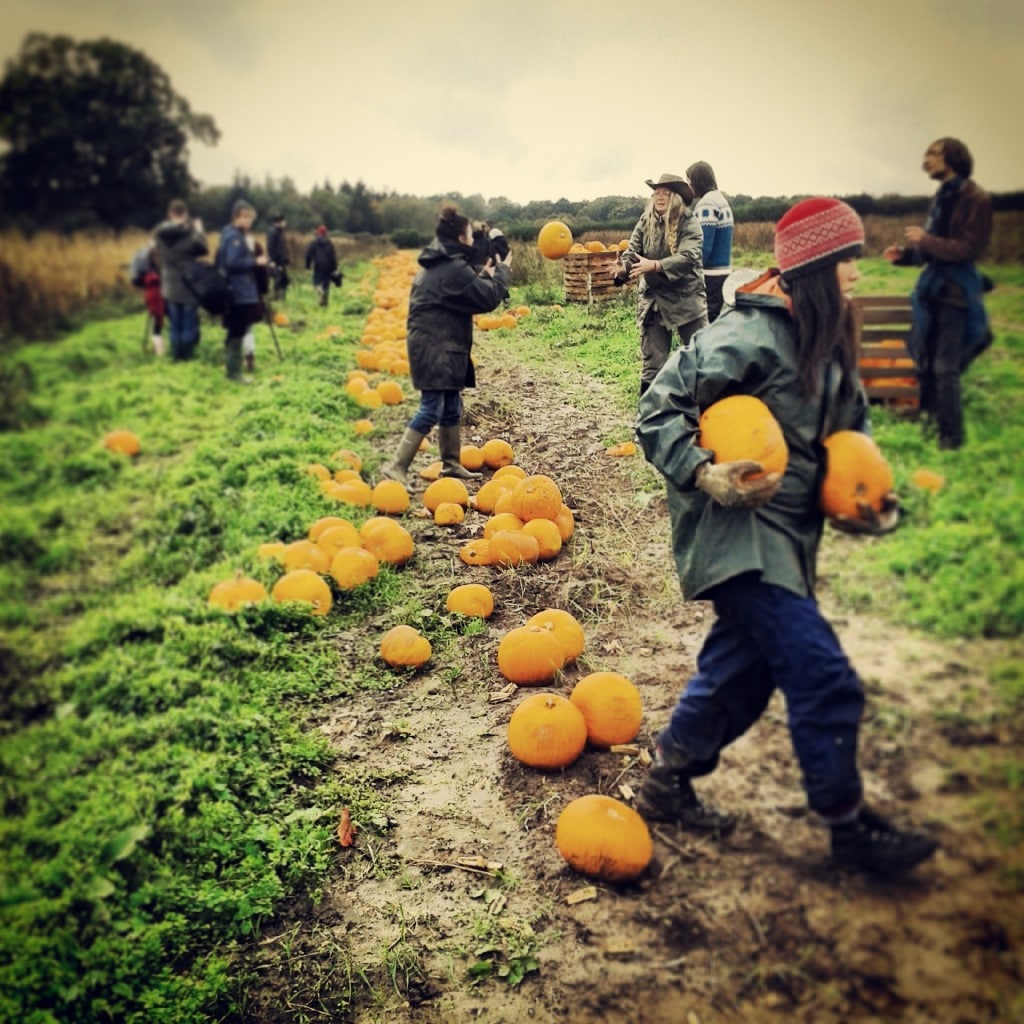
What started out in an orchard in the south of England in 2012 has spread to hubs in Belgium, France, Greece, Spain and other EU countries – working with 60 farmers, 3,000 volunteers and numerous charities to rescue over 500 tonnes of fruits and vegetables that would otherwise be wasted in the UK alone.
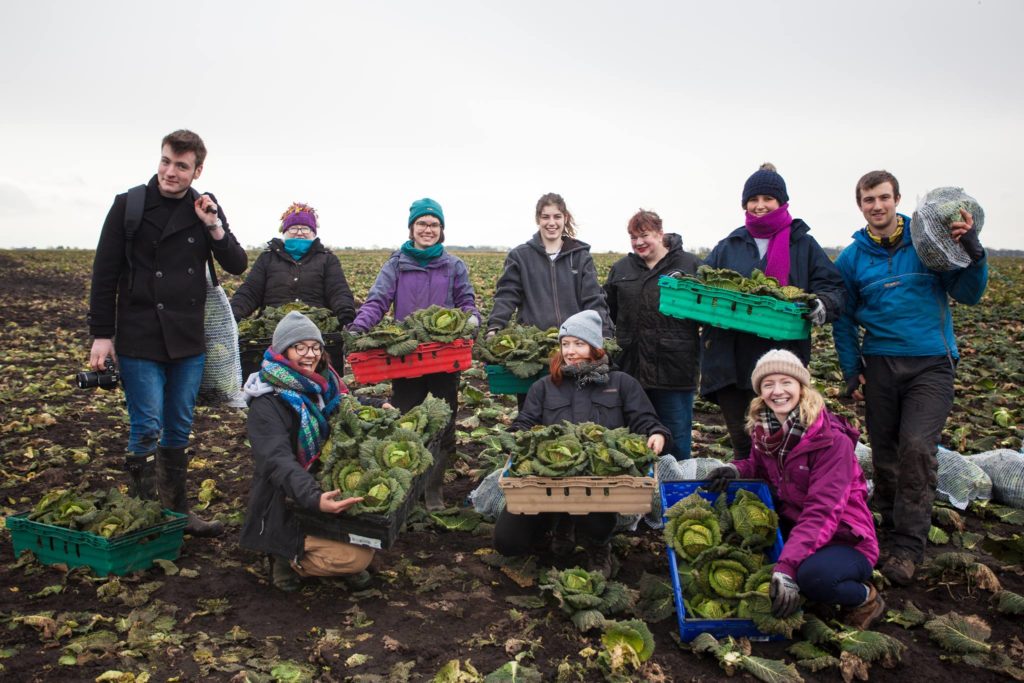
In 2019, they decided the time was right to expand the network further, by training and supporting community groups across the UK. The Gleaning Network website contains a map to help farmers and volunteers find their nearest gleaning group, and a toolkit to help ensure this food reaches good causes.
2020 could be the year farm level food waste peaks due to the huge disruption to the food system from the Covid-19 pandemic. Meanwhile, demand for food banks and emergency food distribution has hit a level of need that signifies a crisis. Gleaning offers an opportunity for straightforward environmental and social wins – food waste on farms is reduced and supply of fresh food to those in need is increased.
AtlasAction: Start or find a Gleaning group or donate to help continue the fight for nutritious food for all. If there is no gleaning in your area and you don’t have the capacity to set up your own, visit Feedback’s website for other ways to get involved in making our food system more sustainable.
Project leader
Carina Millstone, Executive Director, Feedback
Support the Atlas
We want the Atlas of the Future media platform and our event to be available to everybody, everywhere for free – always. Fancy helping us spread stories of hope and optimism to create a better tomorrow? For those able, we'd be grateful for any donation.
- Please support the Atlas here
- Thank you!
